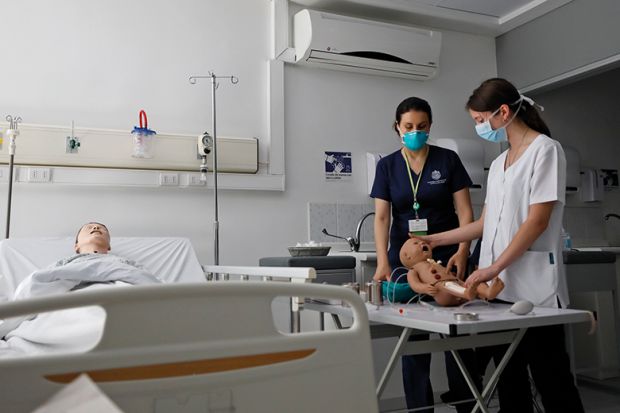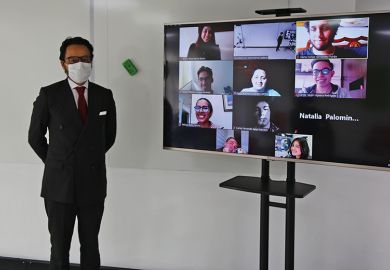Browse the Latin America University Rankings 2021 results
The Covid-19 pandemic challenged the Pontifical Catholic University of Chile to provide the best possible learning environment in a new modality, while also prioritising the community’s well-being.
We quickly implemented a series of innovations and support practices to enable our faculty members to teach remotely, including subscribing to videoconferencing software and providing technical support, multiple workshops and digital resources that allowed our teachers to make the most of online tools.
Among these resources, the one that stands out most is our “remote learning recommendations” manual, a collaborative project between different areas of the academic vice-rectory office, summarising the learning obtained during the first semester of 2020.
The most interesting thing about this digital document, which to date has had more than 125,000 visits, is that it not only includes recommendations on technical aspects of remote teaching, such as creating video capsules, online learning assessment and promoting academic integrity, it also includes sections dedicated to caring for people in our community and more inclusive practices. This was essential, given the increased levels of stress and anxiety during the pandemic.
Together with the manual, we created a course dedicated to designing an online course, which allowed faculty from different areas to learn more about the necessary tools for adapting and transforming their courses for this new modality.
The pandemic also placed emphasis on the need to innovate and collaborate. Valuable ideas emerged from this, such as a virtual bulletin board for the teaching community to share all their insights and tips. It also changed the way in which we assigned funds for innovative practices; we started giving these resources to departments rather than to individual teachers. This led to solutions such as medical mannequins made from dolls, kits for practising surgical stitching at home and robotic arms for maintaining crops remotely, among many other highly creative initiatives that have been perfected since the beginning of the pandemic.
Of course, none of this would have been possible without the dedication and work of our teachers. They are the ones who incorporated the technological tools and who used creativity and innovation to find solutions for a better teaching and learning process. Likewise, the empathy and collaborative attitude shown by many students who remained resilient and understanding during the challenging year are highly valued.
As a higher education institution, our mission and foundational values drive us to contribute to our country and region. That is why all the resources we developed, based on our experience during the pandemic, are freely accessible to the public on our website. There are teaching manuals, examples of best practices, tools, tips, tutorials and webinars.
The pandemic has challenged us, but it also has given us the opportunity to think about how we will teach in the future based on all that we have learned. Regardless of whether the modality is online or face to face, synchronous or asynchronous, with or without technology, we can now take education as a discipline to the next level.
We firmly believe that collaboration, creating networks and transferring our successes from the past year will allow us to overcome not only complex challenges such as lockdowns, but also some of Latin America’s deep-seated social problems like poverty and inequality.
Education is changing; many of the new ways we have been teaching are here to stay. Our main goal is to push our limits and innovate in order to answer new problems, achieve quality learning and create a better world.
Chantal Jouannet Valderrama is director of the Center for Faculty Development at the Pontifical Catholic University of Chile.
POSTSCRIPT:
Print headline: Taking it to the next level
Register to continue
Why register?
- Registration is free and only takes a moment
- Once registered, you can read 3 articles a month
- Sign up for our newsletter
Subscribe
Or subscribe for unlimited access to:
- Unlimited access to news, views, insights & reviews
- Digital editions
- Digital access to THE’s university and college rankings analysis
Already registered or a current subscriber?








